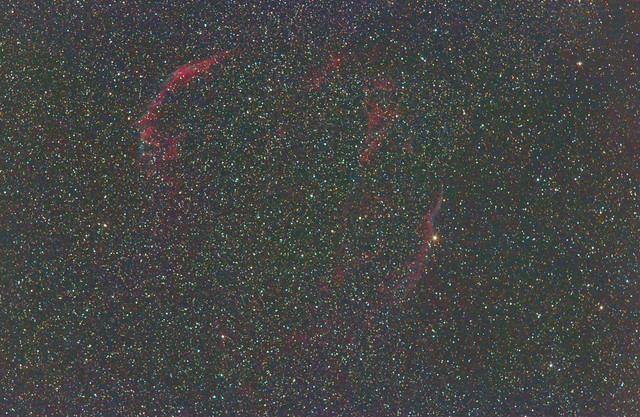Observing Log for Mike Durkin
9/26/2021 about 8:00PM-9:30PM
Locust Valley, NY
Transparency: 10/10, Seeing 3/5
Temperature: 55-65 degrees
Equipment: Stellarvue 70mm refractor
Visual measurements of variable stars Z UMa, α Her, RU Her, S Her and RS Her.
9/24-25/2021 about 11:00PM-1:00AM
Locust Valley, NY
Transparency: 10/10, Seeing 3/5
Temperature: 55-65 degrees
Equipment: Stellarvue 70mm refractor
M30 - Globular cluster. Faint, but could detect the core without much effort.
Unable to resolve any individual stars. Also tried to use averted vision and
nudging the scope to see if I could pick up more. Nudging seemed to help a
little.
M2 - Globular cluster. Brighter than M30 and easy to pick out with the 30mm
eyepiece. Also unable to resolve any individual stars in the cluster.
Moon - A waning gibbous phase, so one that I usuaully don't get to see. Main
craters of interest were Piccolomini and I think Neander, which had some highland
area next to it that was casting some interesting shadows.
Visually measuered variable star Z Del.
I had also tried W Lyr, but that seems to have been too faint.
9/19/2021 about 8:30PM-10:00PM
Locust Valley, NY
Transparency: 9/10, Seeing ??/5
Temperature: 60-70 degrees
Equipment: Hutach modified Canon T3i
DSLR Photometry of P CYG and CH Cyg, with a nearly full moon.
9/11/2021 about 10:00PM-1:00AM
Locust Valley, NY
Transparency: 9/10, Seeing 2/5
Temperature: 50-60 degrees
Equipment: Celestron Ultima 8 with PEC
Some "quick" visual observing. Also curious how long to set up and break down the SCT gear.
About 15 minutes to set up and 20-25 to break down.
Saturn: Was able to make out part of the globe's shadow on part of the ring. Also saw
the moon Titan and very likely Rhea.
Jupiter: The main object for the evening. When I first started, the image was very poor. It
slighty improved during the night, but I don't think my a great amount. Maybe due to actual
seeing conditions or air currents over the house nearby. Initially, Io was in front of the
disk of Jupiter, and in moments of clarity, I was able to see the shadow of the moon. Later
on in the evening, I saw Io move out in front of the disk. But I could not distinguish Io
while it was in front of the planet. Later on before I broke down, I think I was also able
to make out the Great Red Spot, but I wasn't sure since whatever I saw didn't differ in color
by too much. The cloud color between the equatorial gaps also seemed darker than I would have
expected. I sort of made out some features in the north in south polar regions, but they
were not very distinct.
Saturn Nebula: A planetary nebular that was pretty easy to find. Although a little
disappointing under high magnification. It did have an irregular oval shape to it, but no
sharp features at all.
M72: unable to make out at all.
M56: I may have been able to just start to see this globular cluster, but at that point the
neighbors came home and there was some light that got in the way.
9/3/2021 about 9:00PM-12:00AM
Locust Valley, NY
Transparency: 8-9/10, Seeing ??/5
Temperature: 55-65 degrees
Equipment: Hutech modified Canon T3i
DSLR photometry of P Cyg and CH Cyg. I thought about RS Oph as well since it is fading from it's
outburst, but it was a bit too low in the sky after I was done with the Cyg stars.
Then decided to try to image the Veil Nebula using the nice 200mm Canon lens I have. I have done
this target before, but maybe this will be a little better with due to lens quality? Clouds
ruined about half the images though since the sky was getting some clouds near midnight.
<-- 2020 Jan Feb Mar Apr May Jun Jul Aug Sep Oct Nov Dec 2022 -->
